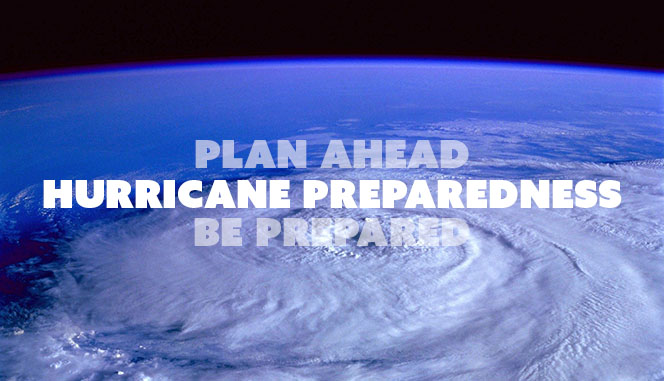If You Need To Evacuate
If advised to evacuate, do so immediately and go to a safe place.
- Know where you will go, how you will get there, and where you will stay.
- Plan well in advance if you will need help leaving or use public transportation.
- Mobile/manufactured/trailer homes and recreational vehicles (RVs) cannot provide safe shelter from tropical-storm or hurricane-force winds.
If You Need To Shelter In Place
- Be ready to live without power, water, gas, phone, and internet for a long time.
- Practice going to a designated safe shelter for high winds. The next best protection is a small, interior, windowless room in a sturdy building on the lowest level that is not likely to flood.
- If you are in an area that is likely to flood, designate a location on higher ground that you can move to before floodwaters reach you.
What Should I Have On Hand?
- Gather food, water, and medicine. Organize supplies into a Go-Kit and a Stay-at-Home Kit.
- Go-Kit: 3 days of supplies that you can carry with you. Include backup batteries and chargers for your devices (cell phone, CPAP, wheelchair, etc.)
- Stay-at-Home Kit: 2 weeks of supplies. Stores and pharmacies might be closed.
- Have a 1-month supply of medication in a child-proof container.
- Keep personal, financial, and medical records safe.
Detailed Kit Inventory
- Water: one gallon per person, per day (3-day supply for evacuation, 2-week supply for home)
- Food: non-perishable, easy-to-prepare items (3-day supply for evacuation, 2-week supply for home)
- Flashlight
- Battery-powered or hand-crank radio (NOAA Weather Radio, if possible)
- Extra batteries
- Deluxe family first aid kit
- Medications (7-day supply) and medical items
- Multi-purpose tool
- Sanitation and personal hygiene items
- Copies of personal documents (medication list and pertinent medical information, proof of address, deed/lease to home, passports, birth certificates, insurance policies)
- Cell phone with chargers
- Family and emergency contact information
- Extra cash
- Emergency blanket
- Map(s) of the area
- Medical supplies (hearing aids with extra batteries, glasses, contact lenses, syringes, etc)
- Baby supplies (bottles, formula, baby food, diapers)
- Games and activities for children
- Pet supplies (collar, leash, ID, food, carrier, bowl)
- Two-way radios
- Extra set of car keys and house keys
- Manual can opener
- Whistle
- N95 or surgical masks
- Matches
- Rain gear
- Towels
- Work gloves
- Tools/supplies for securing your home
- Extra clothing, hat and sturdy shoes
- Plastic sheeting
- Duct tape
- Scissors
- Household liquid bleach
- Entertainment items
- Blankets or sleeping bags











